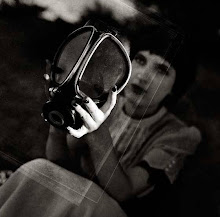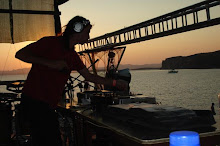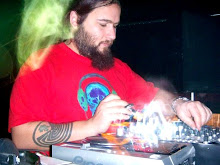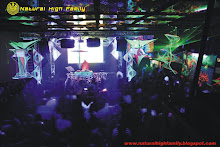31.5.10
"3 Days in The World" in the Occupied Park of Exarchia // 3 Mέρες Στον Κόσμο //
3 days on the Planet
3 Μέρες στον Κόσμο
Δευτέρα 31 Μαϊου 2010
Monday 31 May
IRAQ VETERANS AGAINST THE WAR
+ GEORGE KATSIAFIKAS
(unfortunately this event is CANCELED due
the participation of all of at the demonstration
AGAINST
THE ATHENS ISRAELIAN EMBASSY
in 19.00
Δυστυχώς αυτή η συζήτηση
ακυρώνεται για να συμμετάσχουμε
ΟΛΟΙ ΣΤΗΝ ΔΙΑΔΗΛΩΣΗ ΕΝΑΝΤΙΑ
ΣΤΗΝ ΙΣΡΑΗΛΙΝΗ ΠΡΕΣΒΕΙΑ
ΣΤΙΣ 7.00
ΣΤΗΝ ΑΘΗΝΑ
Τρίτη 1 Ιουνίου 2010
Τuesday 1 June 2010
ΠΛΑΤΕΙΑ ΕΞΑΡΧΕΙΩΝ
LA RAGE :
THE REVOLT IN FRANCE
Η ΕΞΕΓΕΡΣΗ ΣΤΗΝ ΓΑΛΛΙΑ
Ομιλία/ Συζήτηση
με ακτιβίστριες από το κίνημα νέων
"Sans Voix" (Χωρίς Φωνή)
Open Public Talk with activists
from the French movement
"Sans Voix"
at the square Exarchia
+++++
HIP HOP SOUND SYSTEM:
special GUEST from FRANCE
+
d.j. Differ | T.F.S.|
Ψυχόδραμα 07 | Productive
organized by
Void Network
&
Nosotros Social Centre
οργάνωση:
Κενό Δίκτυο
& Κοινωνικό Κέντρο Νοσοτρος
Τετάρτη 2 Ιουνίου 2010
Wednesday 2 June 2010
Occupied Park of Exarchia
Αυτοδιαχειριζόμενο Πάρκο
Ναυαρίνου
OCCUPY CALIFORNIA
Open Public talk with activists from the
American Student Movement
Δημόσια Ανοιχτή Συζήτηση
με φοιτητές-ακτιβιστές από το
φοιτητικό κίνημα καταλήψεων
πανεπιστημίων
στην Καλιφόρνια
+
VOID SPACE DUB
SOUND SYSTEM
έναρξη (starts) at
18.00
+++++
next event:
Athens
Polytechnioupoli
university campus
Saturday 5 June 2010
Void Network
1990/2010
20 Years in Space
special guest
Mark Allen [u.k.]
26.5.10
25.5.10
Report: Wandering in Amsterdam & participation at the Anarchist Festival Pinksterlanddagen
Amsterdam is beatifull but melancholic... The prostitutes on the vitrins makes me think that all of us are prostitutes on some vitrin. Women passing by loughing and feel lucky that they avoid this fortune...Did we avoid this fortune?...Tourists, drunk men and cynical consumers of all ages are conqouring every corner of Amsterdam...The movement is weak, passive, the squats are isolated,... nationalism, right wing popularsm and racism becomes stronger and stronger...The wonderfull people from Anarchist Group of Amsterdam are running some great projects like their offices, a printing laboratory and an anarchist library in a block of radical activities
The days of the festival of course were more enthousuastic for all of us....A lot of people, more than 500 people from all Netherlands, many books, pamphlets, talks, some very interesting lectures... Among them one of the most interesting was the talk of Gabriel Khun : "Is Anarchism Just western?" and the talk just after that about Anarchism in Middle East. Void Optical Art Laboratory // Void Network did some inspirational projections at the night of the concert of ska, reaggae and dub bands ans djs.
Tasos Sagris from Void Network spoke for 4.30 hours in the last day of the festival sharing strateges, methodologies and ideas about the Greek movements and the building of international solidarity
(recorded sound archive of the major parts of the talk soon available here through Holland Indymdia)
21.5.10
Void Network announces the participation at Anarchist Festival Pinksterlanddagen from 21 until 23 of May in Holland
Anarchist Festival
Pinksterlanddagen
from
21 until 23 of May
in Holland
The Anarchist Festival
Pinksterlanddagen
is taking place in the same
area from 1924
for the last 77 years :
The co-editors of the book
We Are an Image from The Future
(The Greek Revolt of December 2008)
from Void Network
will speak in Sunday 23 May
at 15.00
continuing the talks from
U.S.A. 2010 // Void Network Tour
followed the publication of the book
you can have an idea of the
We Are an Image from The Future U.S.A. talks
from the presentation at B.A.S.T.A.R.D Conference, Berkeley University:
http://www.indybay.org/newsitems/2010/03/18/18641710.php19.5.10
Exclusive interview with Matthew Edwards, ex-USA Marine and activist from Iraq Veterans Against The War by Tasos Sagris & Sissy Doutsiou from Void Network
Void Network
[Theory, Utopia, Empathy, Ephemeral Arts]
http://voidnetwork.blogspot.com
Exclusive interview with Matthew Edwards, ex-USA Marine and activist from "Iraq Veterans Against The War" by Tasos Sagris & Sissy Doutsiou from Void Network for the special BFest issue of the Greek antiauthoritarian newspaper Babylonia
Matthew Edwards will speak in Athens for the opening of Bfest in 26 May 2010
1. How did you end up in the marines, what made you join the american army and find yourself fighting in Iraq?
I joined the Marines when I was still in high school at 16 through the Delayed Entry Program. I was in an military youth group from ages 13-17, and it was while in this youth program that I decided to join the marines. The impetus for wanting to serve originally came from seeing the military being used to quell the 1992 Los Angeles riots. I did not understand the larger meaning of the riots and was scared and frightened, so when the military was bought in I associated protection and civility with the military. I was wrong. I never served in Iraq or Afghanistan. I refused to participate and was detained, beaten and tortured for 6 months before I was discharged.
2. What did you felt before going to Iraq? What was the experiences of the marines that they’ve been on this war of USA against the people of Afghanistan and Iraq?
I never went to Iraq. I refused to go. I can only speak honestly about my treatment and what I went through. The first weeks of my refusal were met with beatings, starvation, sleep deprivation, threats, interrogations, and stress positions. People I know who did deploy to a conflict zone tell me of intense boredom during the buildup or when in a "safe zone" and incredible terror during firefights. But that is not something I can speak of first hand. There are a myriad of possible experiences to talk about. Inside Iraq and Afghanistan are over 100,000 members of the US military and 10,000's more government employees and contractors. Each have their own experiences that can often contradict the experiences of another. The following are stories people told me in confidence, so I will not use their names or details that would identify them but the content and meaning are true.2. What did you felt before going to Iraq? What was the experiences of the marines that they’ve been on this war of USA against the people of Afghanistan and Iraq?
My friend had been "in country" for just a few days when he was in his armoured humvee a few miles from Bagdad in March of 2003. They had been at war for less than a hundred hours and were about to enter the Iraqi capital for the first time. He had not slept for close to a week but the pills that were given to him kept him wired and wide awake. Everyone was taking these pills and many people would go on to develop substance abuse problems after leaving Iraq. He was not scared in the way he thought he'd be. Behind him was an army of angry and jacked up Marines waiting to "get sum" i.e. shoot and kill the enemy. It was exciting.
Another friend of mine was on a run around the base perimeter. He was a POG (Person Other than Grunt) so was not often sent on patrols, but that was no reason to not be physically fit and ready for action. This was his first tour and he was nearing the end of it. As he ran in the mid afternoon sun he saw the wavy line of moisture evaporating from the dry desert sand. He looked down and stopped to re-tie his shoe which had come undone. As he did so there was a mortar attack. These homemade mortars are not as accurate as the factory spec. kinds but they rain death down just as good. A mortar shell landed and exploded 20 meters from where my friend was crouched to tie his shoe. If he had kept on running he would have been in the kill/blast radius. "I could have died" was his only thought. "Jesus, I could have died. I'd be dead now. Dead".
A third friend was on check point duty in Fallujah. The rules of engagement were simple: They (cars) had to stop at the stop sign. If they did not stop, then the orders were to fire warning shots. If they still did not stop then open up and kill everyone and everything in the car. A beat up old Toyota with a group of people in it "California rolled" (slowly crept through the stop sign without stopping) so they fired a few rounds down range. The car sped up and so they opened fire. They shot hundreds of rounds into the car and its occupants. The fear of course was that the car had suicide bombers in it. When the Marines went to inspect the car they saw a family: father, mother, and three children, who looked as though they had been returning from a wedding or family celebration. All were dead.
Another friend works with IVAW, DAM, and is an independent artist and musician. He served 4 tours: two in Iraq and two in Afghanistan. He was an Air Force load master, meaning he was in-change of payload and cargo on the large transport planes ferrying everything from high profile dignitaries, to food, to ammo, to terror suspects being taken for interrogation. Eddie joined the military to get out of the Los Angeles scene of drugs, prison and gang and police violence. He was promised money for college and a "new life." Being of Latino decent he was treated differently than others. He always pushed himself to excel and often surpassed the others in his squadron. But comments like "you shoot well for a Latino" or "you're fast for a Mexican" showed him the true nature of life in the military-- a life based on racism and domination. While he was transporting prisoners, who were shackled and blindfolded but shaking with fear, he had a realization that the treatment these people were receiving was similar to the treatment that "illegal" immigrants receive when caught in America. This prompted Eddie to think further and deeper into the rationale behind the US's motivation for the war on terror. When he was discharged he went straight into organizing around community and anti-war issues. The links between the US war on terror, war on drugs, war on immigrants, war on the poor, war on people of color, war on women, and war on queers are all linked in Eddie's mind, and he is right. Eddie lives and works San Francisco.
Another friend works with IVAW, DAM, and is an independent artist and musician. He served 4 tours: two in Iraq and two in Afghanistan. He was an Air Force load master, meaning he was in-change of payload and cargo on the large transport planes ferrying everything from high profile dignitaries, to food, to ammo, to terror suspects being taken for interrogation. Eddie joined the military to get out of the Los Angeles scene of drugs, prison and gang and police violence. He was promised money for college and a "new life." Being of Latino decent he was treated differently than others. He always pushed himself to excel and often surpassed the others in his squadron. But comments like "you shoot well for a Latino" or "you're fast for a Mexican" showed him the true nature of life in the military-- a life based on racism and domination. While he was transporting prisoners, who were shackled and blindfolded but shaking with fear, he had a realization that the treatment these people were receiving was similar to the treatment that "illegal" immigrants receive when caught in America. This prompted Eddie to think further and deeper into the rationale behind the US's motivation for the war on terror. When he was discharged he went straight into organizing around community and anti-war issues. The links between the US war on terror, war on drugs, war on immigrants, war on the poor, war on people of color, war on women, and war on queers are all linked in Eddie's mind, and he is right. Eddie lives and works San Francisco.
3. What were your political ideas before arriving in Iraq and what was that made you change your mind?
A note about my friend, he later killed himself after returning from his second tour in Iraq. There have been more suicides than combat deaths in the US military over the past 10 years.
4. How did you decide to quit from the american army during war in Iraq and what was the consequences of your decision?
4. How did you decide to quit from the american army during war in Iraq and what was the consequences of your decision?
It was a decision based on my deep desire to not kill Iraqis or Afghanis or anyone the US government told me too for purely greedy and capitalistic reasons. The slogan was "No blood for Oil". The consequences were a hellish 6 months of mistreatment and torture that left me with a broken hip and dark memories.
5. As we know after the end of your imprisonment in Iraq you traveled in Middle East, in Syria, Libanon and Palestine in your effort to meet the «Other», the «Enemy»…What is your opinion about the Middle East «enemies» of American empire, what is your opinion about islamic countries and the conflict with Israel and USA?
I lived in Damascus, Syria for just under a year during 2007. That was 4 years after I was discharged from the Marines and just after I was finished with University. Its important for me to say that I never saw the people in Syria, Lebanon, or Palestine as my enemy or "the other". This binary is the basis for the system I live in, global capitalist society, and is not the system that I want to live in. The people there have been made into the "enemy" so it is easier for "us" to kill "them" and take what "they" have for "us." I firstly must say that I believe in the right of resistance; people have the right to defend themselves. Secondly, America's enemies are not enemies of Americans which I found to be true throughout all my travels in the Middle East. There is a general understanding that governments do not speak for their people, but for their economic, military, and political interests. The enemies of American Empire are right in that the American Empire is poison and should not be allowed to continue. Although opposition to US global hegemony spans the breadth of the political spectrum, a political agenda is not validated solely by virtue of its critique of American foreign policy, however accurate that critique may be. The historical adage that "the enemy of my enemy is my friend" is a fallacy. A common enemy is not synonymous with common goals. 5. As we know after the end of your imprisonment in Iraq you traveled in Middle East, in Syria, Libanon and Palestine in your effort to meet the «Other», the «Enemy»…What is your opinion about the Middle East «enemies» of American empire, what is your opinion about islamic countries and the conflict with Israel and USA?
While in Damascus I had the opportunity to meet and interview people who claimed that they were Jihadists, the majority of whom were Iraqi refugees. When hearing their stories about why they had chosen their paths that, "if all went well", would certainly lead them to their deaths, it was hard to refute their justifications for martyrdom. When someone is explaining that they had lost everything- family, friends, money, access to better life-- and are given a chance to make a statement that will be heard around the world- "passing by the desks of generals and presidents"-- how could they say no? My understanding of these conversations led me to believe that the resistance that was being brought against the US occupation of Iraq went beyond the religious to where the acts of suicidal violence became in a sense political statements. These interviews occurred during the summer of 2007 when there was basically a civil war being fought with suicide attacks between the various ethic populations of Iraq. The reality was that these people knew that once in Iraq they were more than likely not going to be used against coalition forces but against other Iraqis. When questioned about this the general feeling was that the statement was the same-- "I disagree to the point of bringing death with my own body."
In general I really like the Middle East. The people (like most people when given a chance) are generous, friendly, and wonderful. I have very definite problems with the governments of every country (most especially my own) that I've been to and the religious governments of the Middle East are no exception. I do have a special affinity for the people of the Levant, though. I like the food, weather and atmosphere. I like bartering and sweet tea and coffee so I fit in fine despite the tattoos.
I spent a month as part of a anti-militarist delegation and documentary film crew in Israel and Palestine in late 2009. The project which will be complete in the summer of 2010 can be seen at www.againstmilitarism.org. I learned quite a bit about life on the ground in Israel and Palestine. Palestine has been under military occupation for 60 years and Israel has been under a fascist occupation for just as long. I see a strong US influence in the region. The most glaring example is US military aid to Israel which has allowed the occupation and hyper militarization of the region to grow exponentially. Obviously I think it should stop immediately. I met hundreds of dedicated people, Israeli and Palestinian, working with each other and exclusively within their own communities. I was delighted to see a diversity of tactics being used to fit the many different types of situations that occur during the course of the occupation.
6. What is your opinion about the american society?... How an «Iraq veteran against the war» is looking american society? What is «Iraq Veterans Against The War» organization, how it works and what is the action of it?
I spent a month as part of a anti-militarist delegation and documentary film crew in Israel and Palestine in late 2009. The project which will be complete in the summer of 2010 can be seen at www.againstmilitarism.org. I learned quite a bit about life on the ground in Israel and Palestine. Palestine has been under military occupation for 60 years and Israel has been under a fascist occupation for just as long. I see a strong US influence in the region. The most glaring example is US military aid to Israel which has allowed the occupation and hyper militarization of the region to grow exponentially. Obviously I think it should stop immediately. I met hundreds of dedicated people, Israeli and Palestinian, working with each other and exclusively within their own communities. I was delighted to see a diversity of tactics being used to fit the many different types of situations that occur during the course of the occupation.
6. What is your opinion about the american society?... How an «Iraq veteran against the war» is looking american society? What is «Iraq Veterans Against The War» organization, how it works and what is the action of it?
.I think America has the highest standard of living in the world, and that it attained that standered by taking from everyone else. Within the borders of the US there is deep deep poverty, unequal access to resources, and inequality at the highest levels of power. There is also resistance, and that makes me happy. Iraq Veteran's Against the War states clearly that something within American society if fundamentally wrong. The points of unity are:
· Immediate withdrawal of all occupying forces in Iraq;
· Reparations for the human and structural damages Iraq has suffered, and stopping the corporate pillaging of Iraq so that their people can control their own lives and future; and
· Full benefits, adequate healthcare (including mental health), and other supports for returning servicemen and women.
I am an active member of the San Francisco Bay Area IVAW chapter and do not speak for the organization as a whole. Each chapter of IVAW acts autonomously. Some chapters, like in San Francisco link the war in Iraq and Afghanistan to a larger problem, others are more conserveative and stick only to the points of unity. There is also no singular political ideology. The ranks of IVAW are filled with everything from anarchists, communists, democrats, fascists, greens, libertarians, republicans, socialists, to Zionists. Actions include symbolic direct actions to community organizing and counter-recruitment activities.
For more info about the Iraq Veterans Against the War:
or all info & programme of Bfest:
Void Network
[Theory, Utopia, Empathy, Ephemeral Arts]
http://voidnetwork.blogspot.com
Subscribe to:
Posts (Atom)





















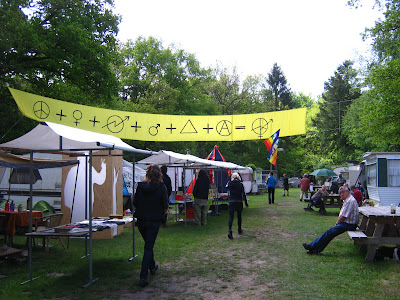


































![VOID MIRROR [theory, info, global movement news]](https://blogger.googleusercontent.com/img/b/R29vZ2xl/AVvXsEiaLvlWRUHJgycn3xI3d8kfRy7JwD48VBDrUl4osdfXHWblUYSZrv_kakq0n4EYTxCnB4tBlqW3F3tCE7gdirCT2h7mjA2beX6e1tn4Sc5EFXsCxV1deIOXpLuwgjsv0Kn_ZURwlQ/s220/CeluBkCWQAAFgxB.jpg)

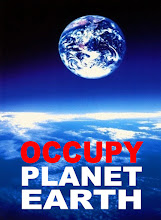










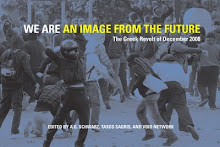


![READ TEXT ONLINE: WE ARE AN IMAGE FROM THE FUTURE [THE GREEK REVOLT OF DECEMBER 2008 ]](https://blogger.googleusercontent.com/img/b/R29vZ2xl/AVvXsEiSh9LwgbFVtp1LmXgtGFBHJd6XMGn7D1zhacFhu1rKb-ILRy-vEo9bDOQcqA3AMYp6grDF0h3lAZHW7HIPmPU-THY1GOBDE4NLSh_8amqgL7AnNLemp0tFOeKe6emqrfJk-1hPUw/s220/510T1GQ26KL._BO2%252C204%252C203%252C200_PIsitb-sticker-arrow-click%252CTopRight%252C35%252C-76_AA300_SH20_OU01_.jpg)





![THESES ON DRUGS [GREEK LANGUAGE]](https://blogger.googleusercontent.com/img/b/R29vZ2xl/AVvXsEiXbps2DJgHZ7MbN1LbTE9wlP-wedJMrC7UgMKj9u_WiSqzE7AGqKK_MDpdo8uCncOr1M_ij29TOenU19hiZtaaVytO4HrSAykfPr-TXsnXO6mfjCALzB10X27jPRFOydxBKUlk8g/s220/%25CE%2596%25CE%2597%25CE%25A4%25CE%2597%25CE%259C%25CE%2591+%25CE%25A4%25CE%25A9%25CE%259D+%25CE%259D%25CE%2591%25CE%25A1%25CE%259A%25CE%25A9%25CE%25A4%25CE%2599%25CE%259A%25CE%25A9%25CE%259D.jpg)






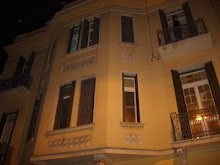

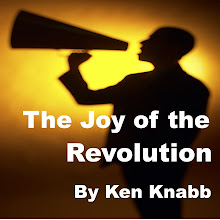




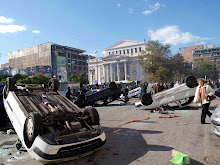
![GLOBAL EYE [LONDON section of VOID NETWORK]](http://1.bp.blogspot.com/_vSyk6SJoF1M/Sfr7KhauTxI/AAAAAAAACmM/nCtI6Kzenbg/S220/global+eye+photo.jpg)





